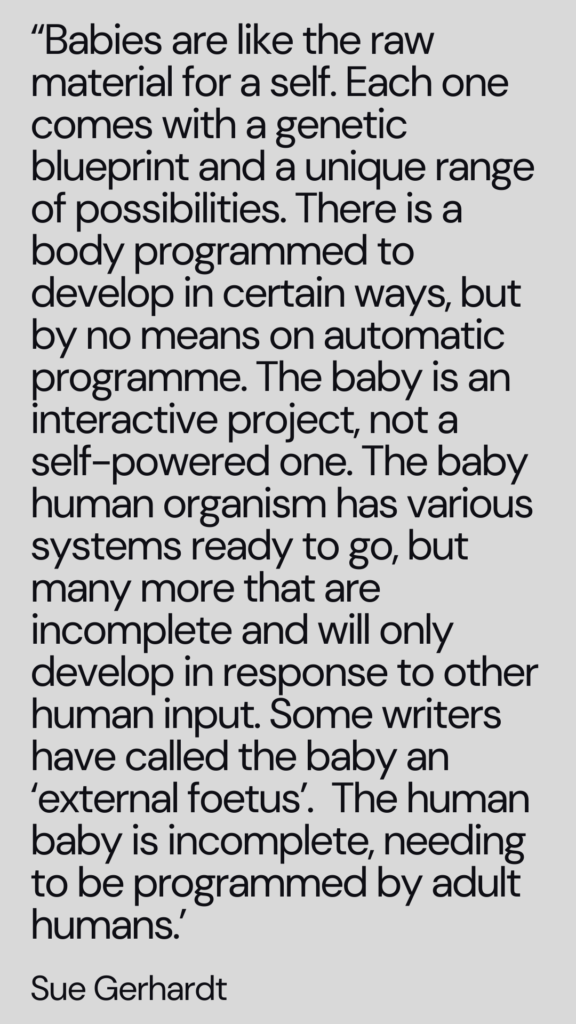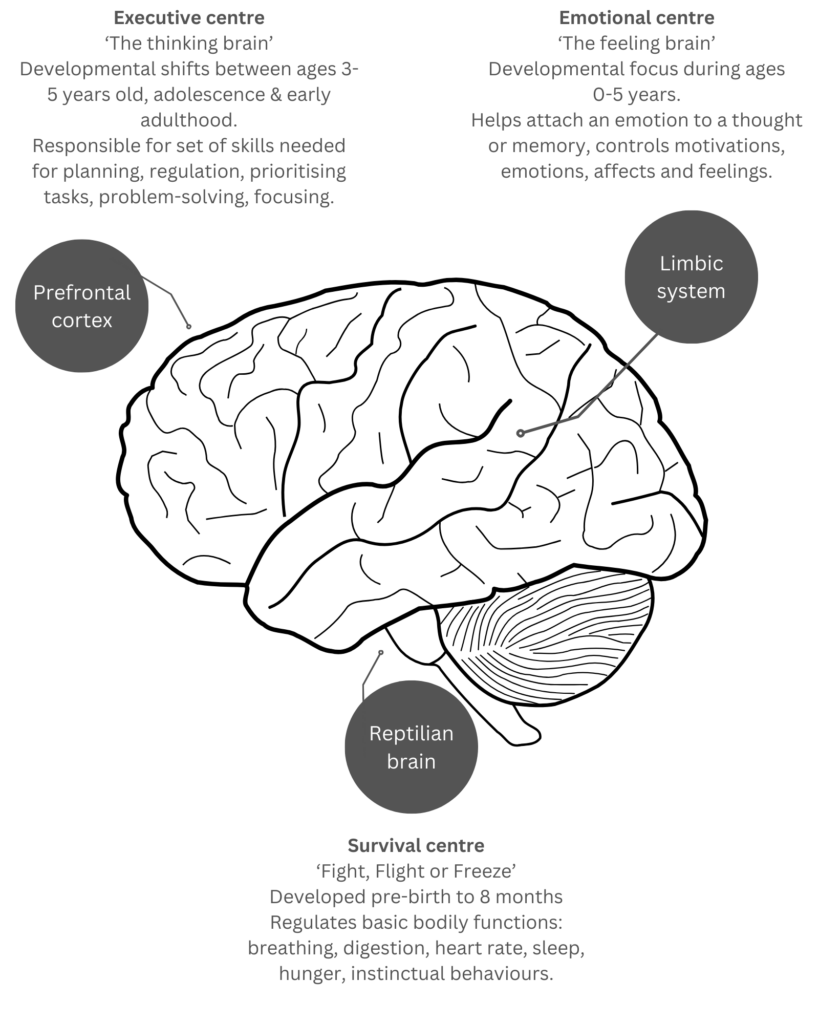Introduce
Early Relationships
In order to be able to support the emotional wellbeing of children, it is important to understand how children develop and what can get in the way of that process.
Early relationships shape emotional and social development and this begins during pregnancy, when a baby’s brain is developing rapidly and can be influenced by the physical environment of the womb, as well as the wider environment and relationships.
This is illustrated by a quote from Sue Gerhardt, taken from her widely influential book about attachment in children, Why Love Matters:

Nurture and love are essential to the development of the social and emotional brain systems in these formative early years. All attention and interactions will impact babies brain structures. Caregivers who are responsive, sensitive, consistent and caring will help to trigger the development of the ’emotional brain’. The pre-frontal cortex plays a vital role in managing emotions, picking up on social cues, non-verbal communication, enabling empathy and helping with emotional regulation. As you can see from the image below, there is extensive development of the brain between ages of 0-5 years old.

Image source: Lorna Colter
Develop
Social & Emotional Milestones
You can start seeing social and emotional development milestones within the first few weeks and months after birth. Typical development will see a baby:
- Begin to smile in response to positive interactions
- Enjoy playing with others and maybe cry when playing or attention stops
- Become more communicative and expressive with face and body
- Imitate some movements and facial expressions
You can find out about other early emotional and social milestones here:

Image Source: www.pathways.org
Having insight into a child’s stage of development and what might be going on in their brain can help us understand children better. With this understanding we are better placed to help support their emotional wellbeing.
Reflect
Stop and Reflect: Babies and young children experience their world through the relationships they build. It is these relationships that have such an impact on mental health and wellbeing. Consider the following question:
– How can understanding early relationships help improve support for children and families in different settings?






